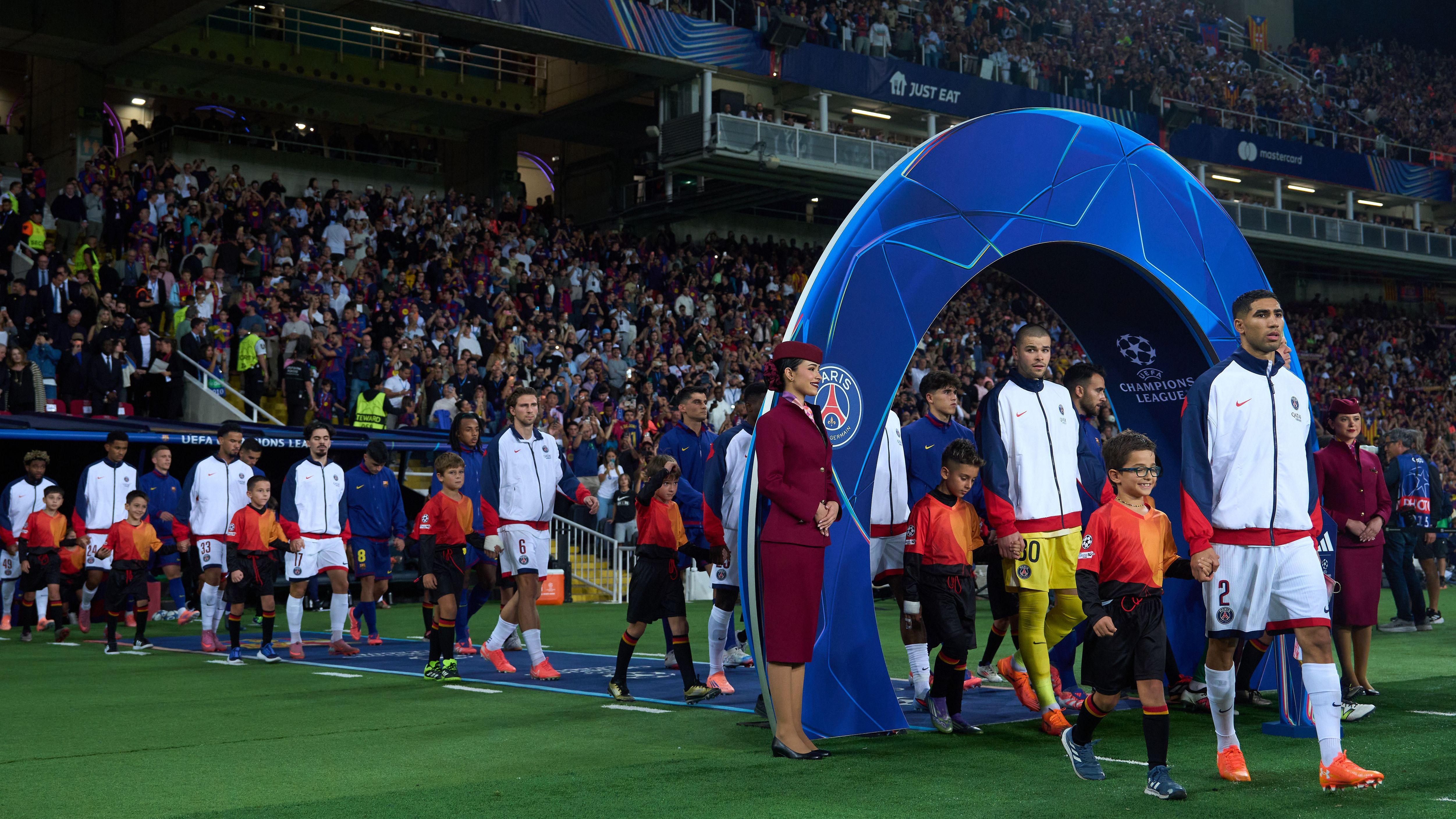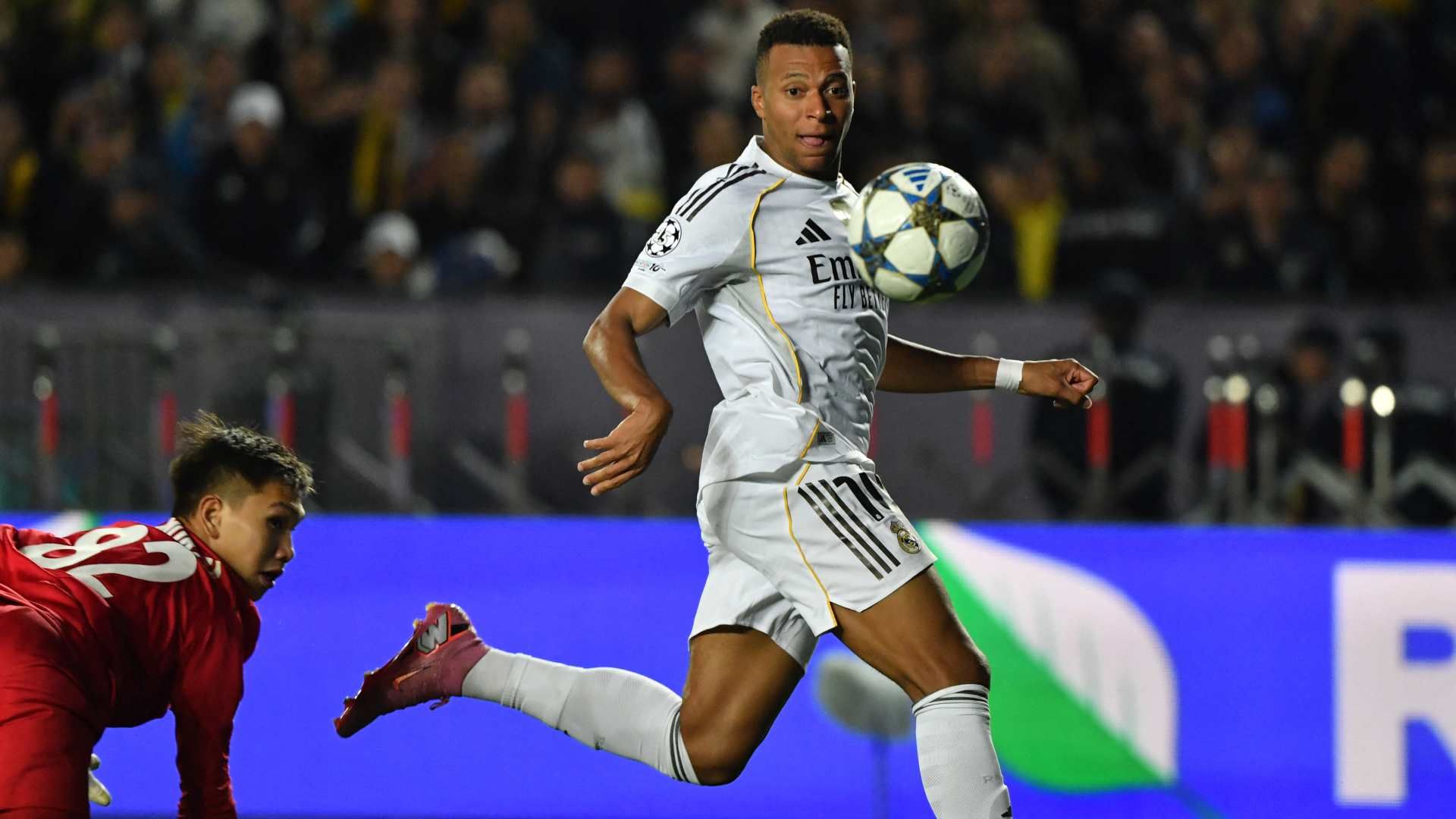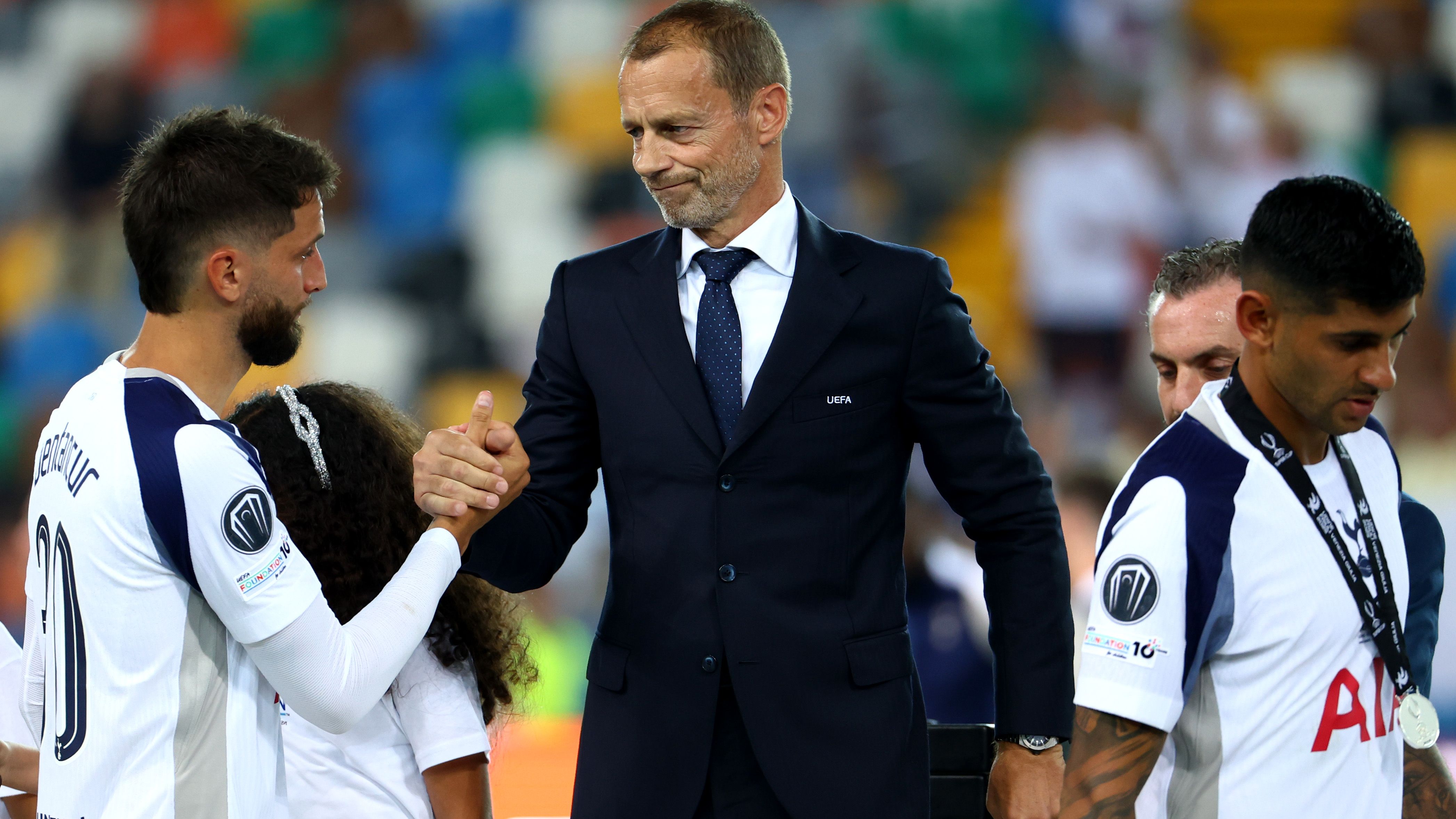




The Fierce Competition for UEFA Champions League Broadcasting Rights
In the evolving world of UEFA Champions League broadcast rights, a groundbreaking opportunity is on the horizon that could reshape how fans worldwide engage with elite European football. Reports from reliable sources indicate that the partnership between UEFA and the European Football Clubs, known as UC3, is gearing up to initiate its initial bidding process for the 2027-33 period, starting October 13. This move includes an innovative feature allowing one broadcaster to claim exclusive global access to a single match per tournament stage, potentially transforming viewer experiences across the globe.
UEFA Champions League Rights: The New Tender Process
A U.S.-based firm, Relevent, has taken over the reins for this tender, stepping in for UEFA’s former global partner in 2024. This agency is now focusing on prominent streaming services, with entities like Netflix, Amazon, and Apple TV being prime candidates for involvement. Insights from various outlets suggest that Relevent has already reached out to Netflix to gauge their enthusiasm, signaling a strategic push toward digital platforms that could dominate future broadcasts.
Including Existing Broadcasters in the Bids
On another front, strategies are in place to let current rights holders join the competition, offering them chances to broaden their coverage areas or extend agreement lengths. This approach might challenge the conventional limits set for European broadcasters, fostering a more competitive and expansive market that goes beyond the typical three-year cycles and encourages long-term partnerships.
Implications for Fans: Navigating Fragmented Viewing Options
The addition of this exclusive global selection could scatter viewing choices even more, possibly compelling fans to subscribe to multiple services. Consider, for instance, how in Germany, the rights are divided among various providers, which might force viewers to sign up for an extra platform just to catch certain games, highlighting the growing complexity of accessing live sports.
Market Exclusions and Future Shifts
Details are still emerging, but it’s clear that the U.S. market will be off-limits for any global packages until 2030, due to CBS’s ongoing exclusive deal that lasts until then. Once that agreement ends, fans in America could encounter similar challenges, underscoring the need for adaptive viewing strategies in different regions.
UEFA’s Vision from Leadership
During a recent address at the European Football Clubs General Assembly, UEFA’s leader, Aleksander Ceferin, stressed the critical role of this rights period in advancing the organization. Though he didn’t detail the global selection aspect, he focused on UEFA’s drive for creative advancements in broadcasting.
He remarked, “This collaboration will propel the sport forward. With Relevent as our ally, we’re equipped with the best resources to achieve this. We’re crafting something exceptional and driven, aimed at providing the most captivating, forward-thinking, and reachable football experiences. To broaden our main income sources, attract fresh followers to our events, and boost interactions with diverse groups in a dynamic media environment. By leveraging digital tools, we’ll make the game more intimate for all, ultimately fortifying our teams and maintaining European football’s elite status.”
Evolving Trends in Sports Media and Streaming
This potential setup for Champions League streaming reflects the rapid shifts in the sports broadcasting sector. Netflix has demonstrated success in live events, such as broadcasting an NFL matchup on Christmas and attracting huge audiences for the Mike Tyson versus Jake Paul event, while also securing rights for the 2027 and 2031 Women’s World Cups, proving their capability in this arena.
UEFA’s Established Streaming Alliances
UEFA has already embraced streaming partnerships, with Amazon currently airing one match per round in markets like the United Kingdom, Germany, and Italy, paving the way for deeper integration of digital platforms into football viewing.
UEFA’s Ambitious Valuation for Champions League Broadcast Rights
In the fast-evolving world of sports broadcasting, UEFA is pushing hard to secure a staggering $5.9 billion annually for the Champions League rights starting in 2027. This move highlights the growing competition from streaming powerhouses like Netflix, Disney, and Amazon, who are all vying to capture a slice of the lucrative live sports market. As fans eagerly anticipate top-tier matches featuring stars from clubs like Real Madrid, Manchester City, and Bayern Munich, understanding this bidding war can shed light on how it might reshape how we watch football.
One key aspect of UEFA’s strategy is leveraging the global appeal of the Champions League, which draws billions of viewers each year. With the tournament’s mix of high-stakes drama and elite talent, it’s no wonder that streaming services see it as a prime opportunity to boost subscriber numbers. For instance, UEFA’s target valuation reflects not just the current TV deals but also the potential for interactive features, like live stats and multi-angle replays, which could make watching games more engaging than ever.
The Impact of Streaming Giants on UEFA’s Plans
Netflix, Disney, and Amazon are bringing unprecedented competition to the table, each with their own strengths in the streaming arena. Take Netflix, for example-it’s already proven its prowess in original content and could use Champions League broadcasts to attract sports fans who might otherwise stick to traditional TV. Similarly, Disney, through its ESPN arm, has a legacy in sports coverage, making it a formidable bidder with deep pockets and a vast audience reach. Amazon, on the other hand, has successfully dipped its toes into live sports with events like Thursday Night Football, showing how it can integrate shopping and exclusive perks to enhance the viewer experience.
This influx of bidders is pushing UEFA to innovate, ensuring that the $5.9 billion figure isn’t just a number but a reflection of added value. Keywords like “Champions League broadcast rights 2027” are buzzing in industry discussions, as these deals could include exclusive content, such as behind-the-scenes access or extended highlights, to justify the high price tag. The competition is fierce, with reports suggesting that streaming services are willing to outbid traditional broadcasters to secure rights, potentially transforming the Champions League into a global streaming event.
Benefits of High-Value Broadcast Deals for Fans and the Sport
High-stakes bidding wars like this one come with some real perks for everyone involved. For starters, more money in UEFA’s coffers means better investment in the sport itself-think upgraded stadiums, youth development programs, and even initiatives to grow women’s football. Fans could benefit from enhanced viewing options, such as 4K streaming, personalized highlights, or integrated betting features, all of which make watching matches more immersive and accessible.
From a broader perspective, these deals could democratize access to the Champions League. Imagine being able to watch games on your phone during a commute or pausing live action without missing a beat-streaming services excel at this. Plus, with keywords like “UEFA Champions League streaming” gaining traction, it’s easier for fans to find reliable ways to tune in, regardless of their location. The benefits extend to advertisers too, as targeted ads during games could create new revenue streams, indirectly supporting lower ticket prices or more affordable subscription models.
Practical Tips for Staying Updated on Champions League Rights
If you’re a die-hard football fan, keeping tabs on these developments can help you prepare for potential changes in how you watch the games. Here are a few practical tips to make the most of it:
- Monitor Official Announcements: Regularly check UEFA’s website or follow reliable sports news outlets for updates on bid progress. This way, you’ll know early if your favorite streaming service wins the rights.
- Compare Subscription Options: As the 2027 deals near, evaluate plans from Netflix, Disney+, and Amazon Prime Video. Look for bundles that include sports add-ons to save money while ensuring you don’t miss key matches.
- Explore Free Trials and Add-Ons: Many services offer free trials-use these to test out Champions League coverage and see if features like ad-free viewing or multiple device streaming suit your needs.
- Join Fan Communities: Engage with online forums or social media groups focused on European football. Sharing experiences from past seasons can give you insights into what’s coming, like how Amazon’s Prime Video handled NFL games.
Case Studies: Lessons from Previous Broadcast Rights Battles
Looking at past examples can provide valuable context for UEFA’s current ambitions. For instance, when the English Premier League secured a massive deal with broadcasters like Sky Sports and BT Sport, it led to a surge in production quality and global reach, similar to what UEFA might achieve with its $5.9 billion target. In the U.S., Amazon’s acquisition of TNF (Thursday Night Football) rights in 2017 serves as a case study of how streaming can revitalize audience engagement, with viewership numbers climbing thanks to features like interactive polls and instant replays.
Another relevant example is Disney’s ESPN, which has dominated sports broadcasting in regions like Latin America. Their success with events like the Copa America shows how integrating live sports with on-demand content can boost retention rates-something UEFA could emulate to fend off competitors. These case studies illustrate that when organizations like UEFA play their cards right, the results can mean more exciting content and better fan experiences, all while navigating the choppy waters of streaming competition.
First-Hand Experiences from the Industry
Drawing from observations in the sports media world, it’s fascinating to see how executives from Netflix and Amazon have shared their strategies in interviews. One executive from Amazon mentioned how acquiring sports rights helped them retain subscribers during off-peak seasons, emphasizing the “sticky” nature of live events like Champions League finals. On the flip side, UEFA officials have hinted at the challenges of negotiating with tech giants, noting that deals must balance financial gains with protecting the sport’s integrity.
Incorporating elements like fan feedback from previous rights cycles, such as complaints about geo-restricted streaming, underscores the need for UEFA to prioritize global accessibility in 2027. This first-hand insight reveals that while the $5.9 billion goal is ambitious, it’s grounded in real-world lessons from the ongoing evolution of sports broadcasting.
As we wrap up this exploration, it’s clear that the battle for Champions League rights is more than just numbers-it’s about shaping the future of football for fans worldwide. With keywords like “UEFA broadcast rights competition” woven into the conversation, staying informed will help you navigate these exciting changes.









